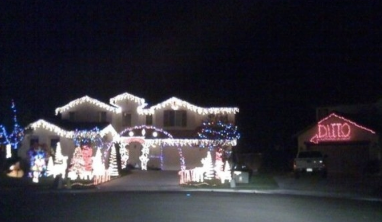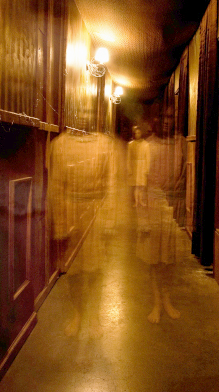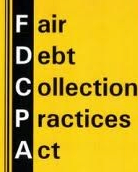 Blog Post by David Swedelson, Partner SwedelsonGottlieb
Blog Post by David Swedelson, Partner SwedelsonGottlieb
As community association attorneys, we are often called upon to deal with neighbor to neighbor complaints and disputes. Well, often is probably an understatement. How about daily? These complaints generally deal with smoke from cigarettes and more lately from (medical) marijuana, hard surface floor noise, owners that fail to pick up after their pets, loud stereos and TVs, and sometimes complaints regarding loud sex. At most condos and HOAs, residents expect their association to be their intermediary. And sometimes we do receive copies of some interesting notes that had been passed on to the offending owner or resident, and sometimes they are quite comical.
A manager of condominium associations referred me to a series of photos posted by the Huffington Post with the title “Most WTF Notes From Annoyed Owners” consisting of 31 photographs of notes from neighbors “reminding their fellow man to stop having sex so loudly, pick up their dog’s waste and other assorted annoyances.” The photos of notes gave me quite a chuckle, especially this one, and I thought I would share them with readers of our blog. Note that these photos include some NSFW (not safe for work) language that some might find offensive. Follow this link to see all the photos.






 We are often asked if a California condominium or homeowners association has the authority to tow vehicles from the association if the vehicle is parked in violation of the association’s Rules and Regulations. The answer is that an association has the right and authority to tow vehicles, assuming that the Association has the proper signage posted in accordance with the California Vehicle Code, the towing is conducted in accordance with the California Vehicle Code, and the association’s Rules allow for same. Do you tow vehicles at your association? Are you considering adopting rules regarding towing? We have updated our information on towing vehicles at community associations and turned it into a printable article.
We are often asked if a California condominium or homeowners association has the authority to tow vehicles from the association if the vehicle is parked in violation of the association’s Rules and Regulations. The answer is that an association has the right and authority to tow vehicles, assuming that the Association has the proper signage posted in accordance with the California Vehicle Code, the towing is conducted in accordance with the California Vehicle Code, and the association’s Rules allow for same. Do you tow vehicles at your association? Are you considering adopting rules regarding towing? We have updated our information on towing vehicles at community associations and turned it into a printable article.  The holidays are just around the corner, and it’s time for community association boards to start getting ready to address issues connected with holiday decorations. What kinds of limits should be placed on holiday decorations? How do you implement holiday rules and regulations? All that and more questions are answered in our article
The holidays are just around the corner, and it’s time for community association boards to start getting ready to address issues connected with holiday decorations. What kinds of limits should be placed on holiday decorations? How do you implement holiday rules and regulations? All that and more questions are answered in our article  Apparently there are many of you out there that are not aware that as of January 2010, California community associations are permitted by law to distribute budget packages and most annual disclosure documents to owners electronically so long as owners give their written consent to receive them by email. Once that consent is obtained, budget distribution can become virtually paperless. To read the statute,
Apparently there are many of you out there that are not aware that as of January 2010, California community associations are permitted by law to distribute budget packages and most annual disclosure documents to owners electronically so long as owners give their written consent to receive them by email. Once that consent is obtained, budget distribution can become virtually paperless. To read the statute,  Okay, it is Halloween. I have been representing condominium associations for 30 years and have never heard of one that is haunted, at least not with goblins and ghosts. But apparently there are some where residents have claimed to have seen ghosts.
Okay, it is Halloween. I have been representing condominium associations for 30 years and have never heard of one that is haunted, at least not with goblins and ghosts. But apparently there are some where residents have claimed to have seen ghosts.  We have had to extricate several of our community association clients (and often their management as well) from claims or lawsuits relating to the federal Fair Debt Collections Practices Act (FDCPA). It is well settled law that the FDCPA applies to the collection of delinquent and unpaid assessments for condominium and homeowner associations. However, the FDCPA does not apply to collection efforts which a community association, the creditor, undertakes on its own to collect on a debt, nor does it apply to its agents whose collection activities are “incidental to a bona fide fiduciary obligation” or which concern a “debt which was not in default at the time it was obtained by such person.”
We have had to extricate several of our community association clients (and often their management as well) from claims or lawsuits relating to the federal Fair Debt Collections Practices Act (FDCPA). It is well settled law that the FDCPA applies to the collection of delinquent and unpaid assessments for condominium and homeowner associations. However, the FDCPA does not apply to collection efforts which a community association, the creditor, undertakes on its own to collect on a debt, nor does it apply to its agents whose collection activities are “incidental to a bona fide fiduciary obligation” or which concern a “debt which was not in default at the time it was obtained by such person.” Santa Monica has passed a law with new smoking rules that affect all multi-unit housing, and that includes condominiums.
Santa Monica has passed a law with new smoking rules that affect all multi-unit housing, and that includes condominiums.